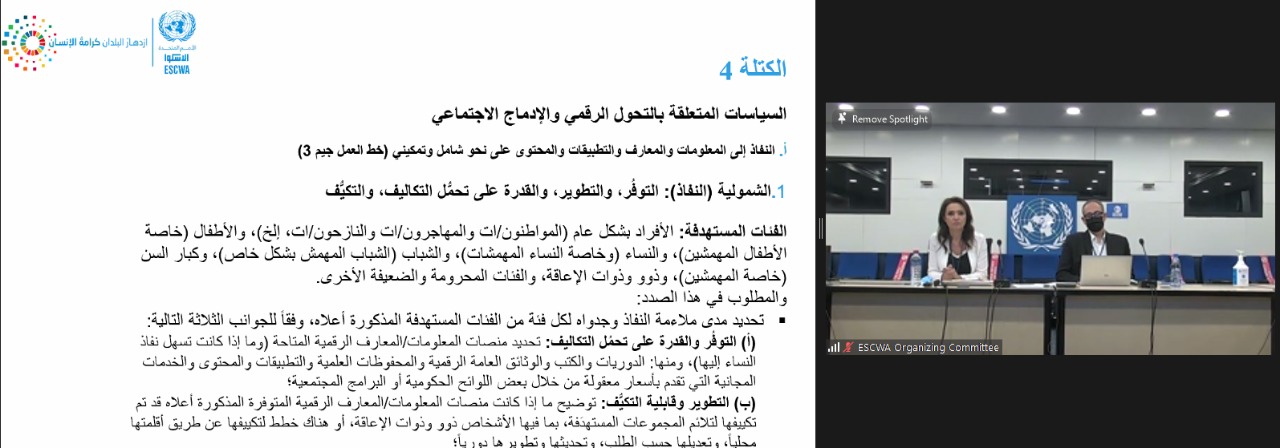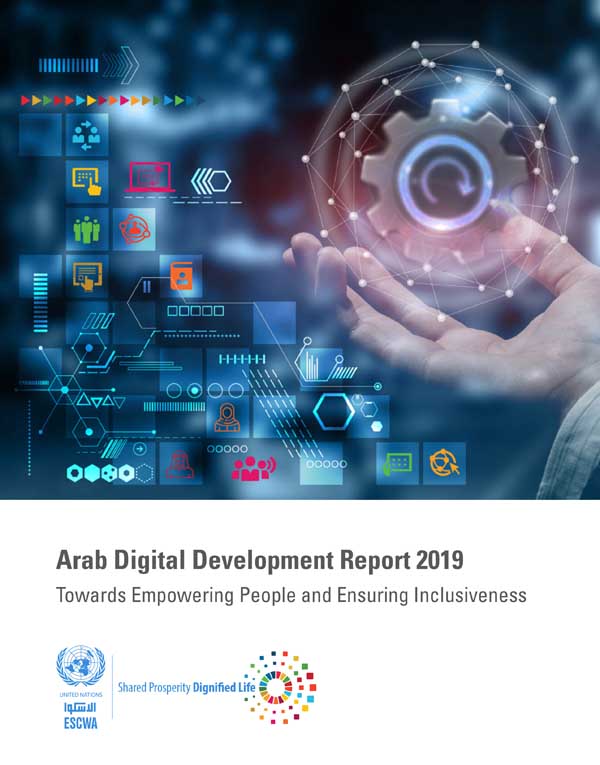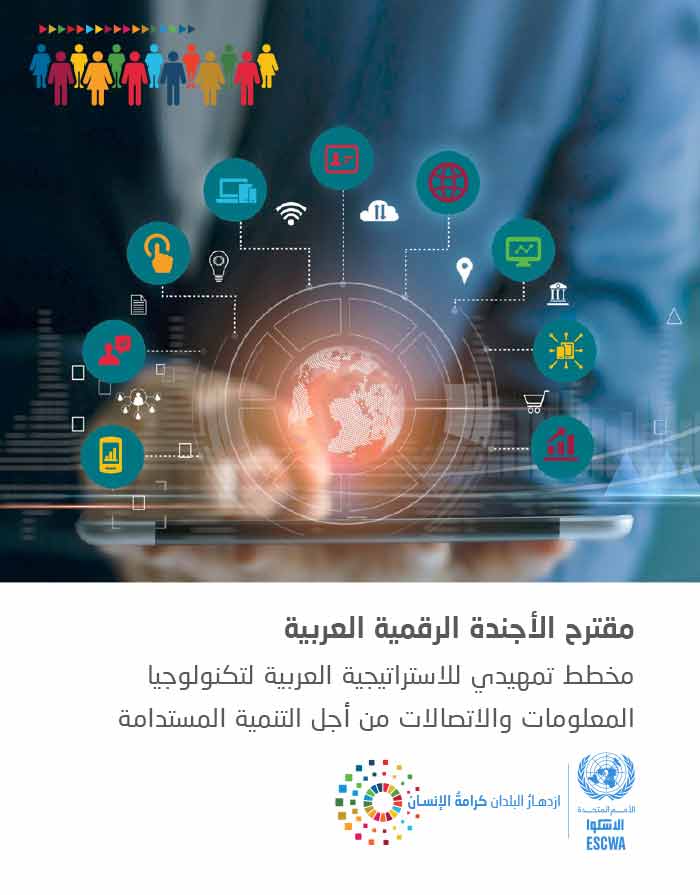Within the framework of the Capacity Building Programme on National Digital Development Reviews Reports (NDDRs) 2021 in the Arab region, ESCWA conducted a foundational workshop for National and Sectoral Focal Points, via internet, on 9 and 10 November 2021.
75 experts from 15 Arab countries; namely, Algeria, Bahrain, Egypt, Iraq, Jordan, Lebanon, Morocco, Oman, Palestine, Qatar, Somalia, Syria, Tunisia, United Arab Emirates and Yemen, involved in the preparation of these reports, participated in the training workshop.
The training workshop introduced the NDDRs methodology and the guiding manual consisting of four components: the conceptual framework, the standard template, the review process, and the terms of reference for national focal points, as a main tool for drafting the NDDRs for 2021-2022.
The workshop elaborated extensively on the standard template, and the five clusters of the digital development conceptual framework, spotlighting lessons learned from NDDRs 2019.
The presentations delivered on the first day covered clusters 1, 2 & 3, on national, regional and international strategic frameworks, infrastructure and legal environment, and digital economy, employment and trade, highlighting selected examples to learn from NDDRs 2019 and avoid potential drafting errors on the subject.
Clusters 4&5 on digital transformation and social inclusion, and cultural and media policy areas, were presented on the second day of the workshop, supported by selected examples to ease the drafting on the subject.
The closing session of the workshop reviewed the next steps, requesting the focal points of the participating countries to submit the inception document no later than Thursday, November 25, 2021, including literature review, the constitution of the national supervising committee (if needed), potential national partners/institutions/experts, and a proposed methodology to prepare the NDDR, with an envisaged timeline and due date for submission of outputs, also noting the deadline of April 2021 to submit the NDDR final draft.
Participating countries were also asked to hold the first national workshop during the last week of November to maximize benefit and be ready for participation in the next training workshop expected to take place on December 23, 2021.



